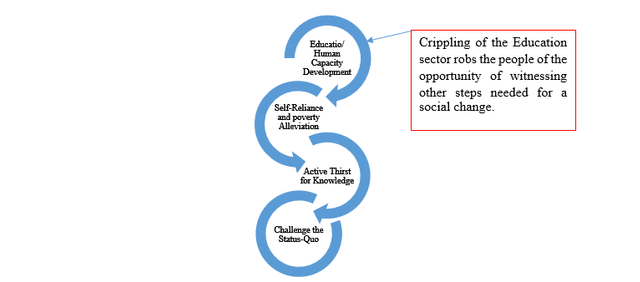The Demand Side of the Anti-corruption War II
We will be wrapping up this post today, you can catch up with the introductory part here

Connecting the silos of moral values
While a significant number of Nigerians see corruption as a morally defective behaviour, the illusion of “standing alone” overwhelms a lot and might, in the face of weak internal fortitude, lead to a changed behaviour in such individual (or a total loss of faith in the moral values or redemption of the country); persistent suppression of lone voices; easy and prime target of victimization.
Anti-corruption conveners should avoid being isolated and continually draw strength from a broad network of like-minded people. Of particular reference is the Game theory concept in economics which shows the potential of arriving at a lower welfare point when two people that should, in precarious situations (similar to fighting heavier and seemingly more power contenders), deny each other the benefit of trust and focus their prime attention on self-satisfaction/glorification.
Populating the Movement
The critical mass is needed to engender any social/attitudinal change. To generate the force needed to effect anti-corruption change in the country, it is imperative to win over the bulk of the citizens who might be reluctant in making huge economic and human cost often attached to fighting a “bigger” force. Stimulating citizens’ engagements requires emphasis on delayed gratification whereby people will be willing to make the sacrifice and deny immediate self-pleasure.
The critical role education/human capacity development plays cannot be overemphasized in anti-corruption fight. This creates a conundrum whereby the necessary funding needed to boost the educational sector and create other essential safety nets for the populace forms the prime target of grand corruption in the country. The combination of ignorance and income poverty creates a particularly easy target for corrupt leaders to override the will of the general public.
As it is obtained globally, citizens’ education and human capacity development have become very critical factors for a sustainable demand-side anti-corruption war in Nigeria.